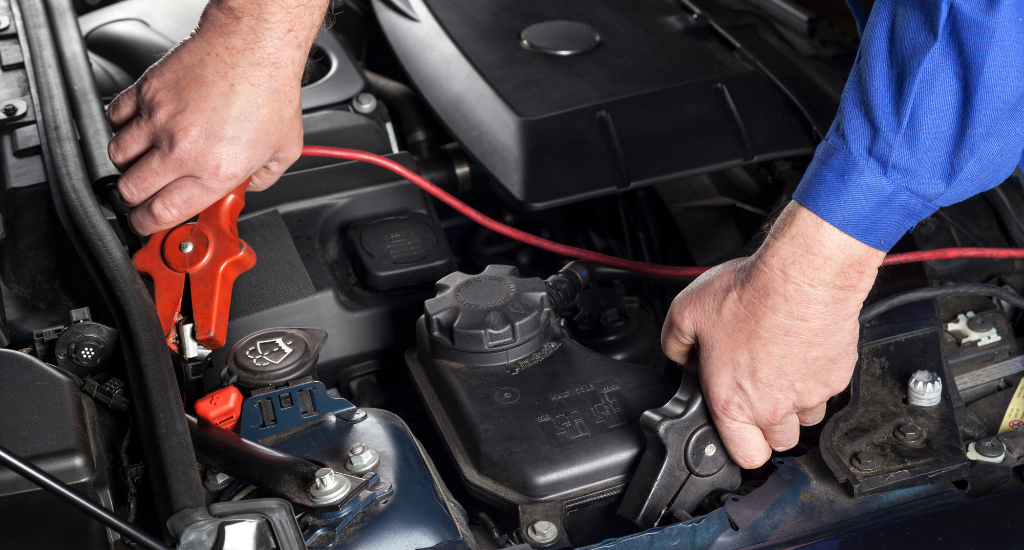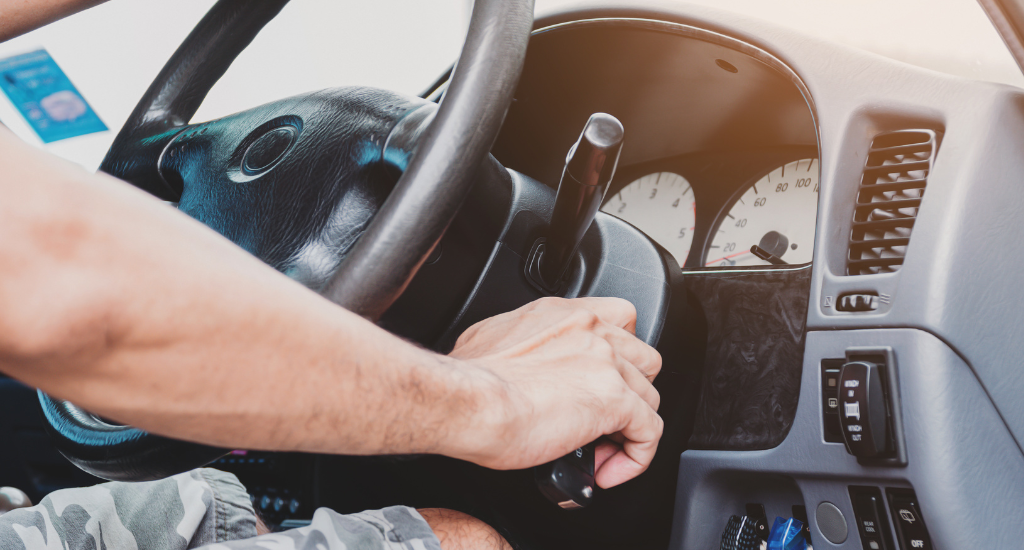10 Reasons Why Your Car Won’t Start
If you’ve ever experienced the frustration of turning the key in your car’s ignition and the engine just won’t start, you know how stressful it can be. There are few things worse than being stranded with a car that won’t start, and it always seems to happen at the worst possible time.
But don’t panic just yet, because there are several common reasons why a car won’t start, and most of them are relatively easy to fix. In this article, we’ll explore the top 10 reasons why your car won’t start and what you can do about it.
Dead Battery
One of the most common reasons why a car won’t start is a dead battery. Your car’s battery is responsible for providing the electrical power needed to start the engine. If the battery is dead, the engine won’t turn over, and the car won’t start. There are several signs of a dead battery, including a clicking sound when you turn the key, dimming headlights, and other electrical issues.

If you suspect that your battery is dead, the first thing you should do is try jump-starting the car. This involves using another car’s battery to provide the electrical power needed to start your engine. If jump-starting the car works, then the problem is likely a dead battery, and you should replace it as soon as possible. If jump-starting the car doesn’t work, then the problem may be something else, and you should move on to the next possible cause.
Fuel Issues
Another common cause of a car not starting is fuel-related problems. If your car isn’t getting enough fuel, or if the fuel isn’t reaching the engine properly, the car won’t start. Some signs of fuel-related problems include the engine cranking but not starting, the engine starting but then immediately stalling, and the engine sputtering or misfiring.
There are several possible causes of fuel-related problems, including a clogged fuel filter, a malfunctioning fuel pump, or a problem with the fuel injectors. If you suspect that your car has a fuel-related problem, the first thing you should do is check the fuel level in the tank. If the tank is empty, then that’s likely the cause of the problem, and you should refill it as soon as possible. If the tank isn’t empty, then you may need to take your car to a mechanic to diagnose and fix the issue.
Ignition Switch Failure
The ignition switch is responsible for turning on the electrical power to your car’s engine. If the ignition switch fails, then the engine won’t start. Some signs of an ignition switch failure include the engine not starting, the engine cranking but not starting, and the engine starting but then immediately stalling.
If you suspect that your car’s ignition switch has failed, the first thing you should do is check the battery to make sure it’s not dead. If the battery is good, then you may need to replace the ignition switch. This is a job best left to a professional mechanic, as it can be difficult and dangerous to do yourself.
Starter Motor Failure
The starter motor is responsible for turning the engine over when you turn the key in the ignition. If the starter motor fails, then the engine won’t start. Some signs of a starter motor failure include a clicking sound when you turn the key, the engine cranking but not starting, and the engine starting but then immediately stalling.
If you suspect that your car’s starter motor has failed, the first thing you should do is check the battery to make sure it’s not dead. If the battery is good, then you may need to replace the starter motor. This is another job that’s best left to a professional mechanic, as it can be difficult and dangerous to do yourself.
Faulty Alternator
The alternator is responsible for charging your car’s battery and providing electrical power to the various components in your car. If the alternator fails, your car’s battery will eventually die, and your car won’t start. Signs of a faulty alternator include dimming headlights, a clicking sound when you turn the key, and other electrical issues.
If you suspect that your car’s alternator has failed, the first thing you should do is check the battery to make sure it’s not dead. If the battery is good, then you may need to replace the alternator. This is another job best left to a professional mechanic, as it can be difficult and dangerous to do yourself.
Malfunctioning Starter Relay
The starter relay is responsible for turning on the starter motor when you turn the key in the ignition. If the starter relay fails, then the engine won’t start. Signs of a malfunctioning starter relay include a clicking sound when you turn the key and the engine cranking but not starting.
If you suspect that your car’s starter relay has failed, the first thing you should do is check the battery to make sure it’s not dead. If the battery is good, then you may need to replace the starter relay. This is a relatively simple and inexpensive job that you can do yourself if you have some basic knowledge of car mechanics.
Bad Spark Plugs
Spark plugs are responsible for igniting the fuel in your car’s engine. If the spark plugs are bad, the engine won’t start. Signs of bad spark plugs include the engine cranking but not starting and the engine sputtering or misfiring.
If you suspect that your car’s spark plugs are bad, the first thing you should do is check them to see if they need to be replaced. This is a relatively simple and inexpensive job that you can do yourself if you have some basic knowledge of car mechanics.
Broken Timing Belt
The timing belt is responsible for keeping the various components of your car’s engine working together in sync. If the timing belt breaks, the engine won’t start. Signs of a broken timing belt include the engine cranking but not starting and a whining or rattling noise coming from the engine.
If you suspect that your car’s timing belt has broken, you should have your car towed to a mechanic immediately. This is a job that requires special tools and knowledge, and attempting to fix it yourself can result in serious damage to your engine.
Clogged Air Filter
The air filter is responsible for keeping dirt and debris out of your car’s engine. If the air filter is clogged, the engine won’t start. Signs of a clogged air filter include the engine cranking but not starting and the engine sputtering or misfiring.
If you suspect that your car’s air filter is clogged, the first thing you should do is check it to see if it needs to be replaced. This is a relatively simple and inexpensive job that you can do yourself if you have some basic knowledge of car mechanics.
Faulty Distributor Cap
The distributor cap is responsible for distributing electrical power to the spark plugs in your car’s engine. If the distributor cap is faulty, the engine won’t start. Signs of a faulty distributor cap include the engine cranking but not starting and the engine sputtering or misfiring.
If you suspect that your car’s distributor cap is faulty, the first thing you should do is check it to see if it needs to be replaced. This is a relatively simple and inexpensive job that you can do yourself if you have some basic knowledge of car mechanics.
Get Back on the Road Faster – Diagnose and Fix Your Car’s Starting Issues with Ease!

A car that won’t start can be a frustrating and stressful experience, but there are several common reasons why it might happen. By understanding these reasons and knowing how to diagnose and fix them, you can save yourself time and money and get back on the road quickly.
Remember to always take safety precautions when working on your car, such as wearing gloves and eye protection and disconnecting the battery before starting any repairs. If you’re not comfortable with doing any of these repairs yourself, it’s always best to take your car to a professional mechanic.
In summary, here are the 10 common reasons why your car won’t start:
| Reason | Symptoms |
| Dead Battery | No response when turning the key |
| Bad Starter Motor | Clicking sound when turning the key |
| Empty Gas Tank | Engine cranking but not starting |
| Clogged Fuel Filter | Engine sputtering or misfiring |
| Faulty Alternator | Dimming headlights, clicking sound |
| Malfunctioning Relay | Clicking sound, engine cranking but not starting |
| Bad Spark Plugs | Engine cranking but not starting, engine sputtering or misfiring |
| Broken Timing Belt | Engine cranking but not starting, whining or rattling noise from the engine |
| Clogged Air Filter | Engine cranking but not starting, engine sputtering or misfiring |
| Faulty Distributor Cap | Engine cranking but not starting, engine sputtering or misfiring |
By knowing the common reasons why your car won’t start, you can be better prepared to diagnose and fix the issue. Whether it’s a dead battery or a faulty distributor cap, understanding the underlying problem can save you time, money, and stress. So the next time your car won’t start, take a deep breath, and work your way through the list. With a little patience and some basic knowledge of car mechanics, you’ll be back on the road in no time.